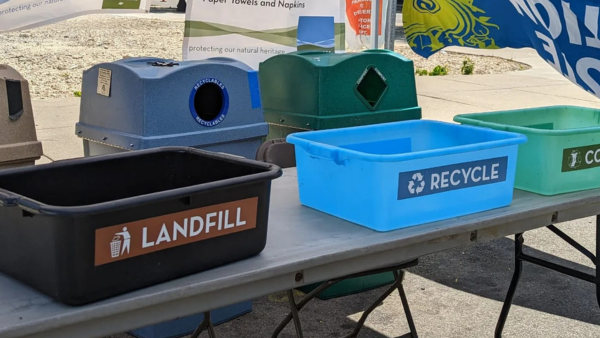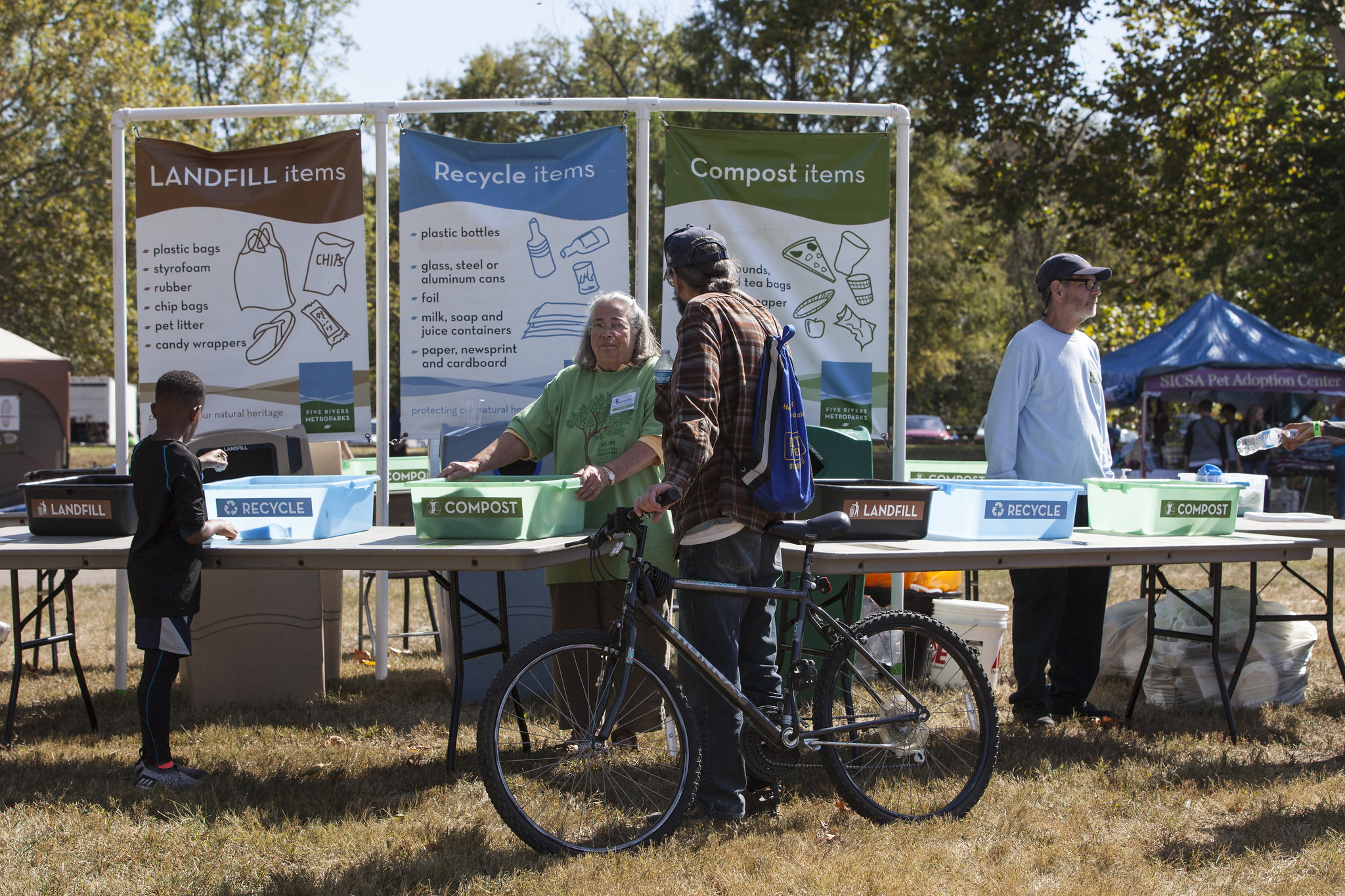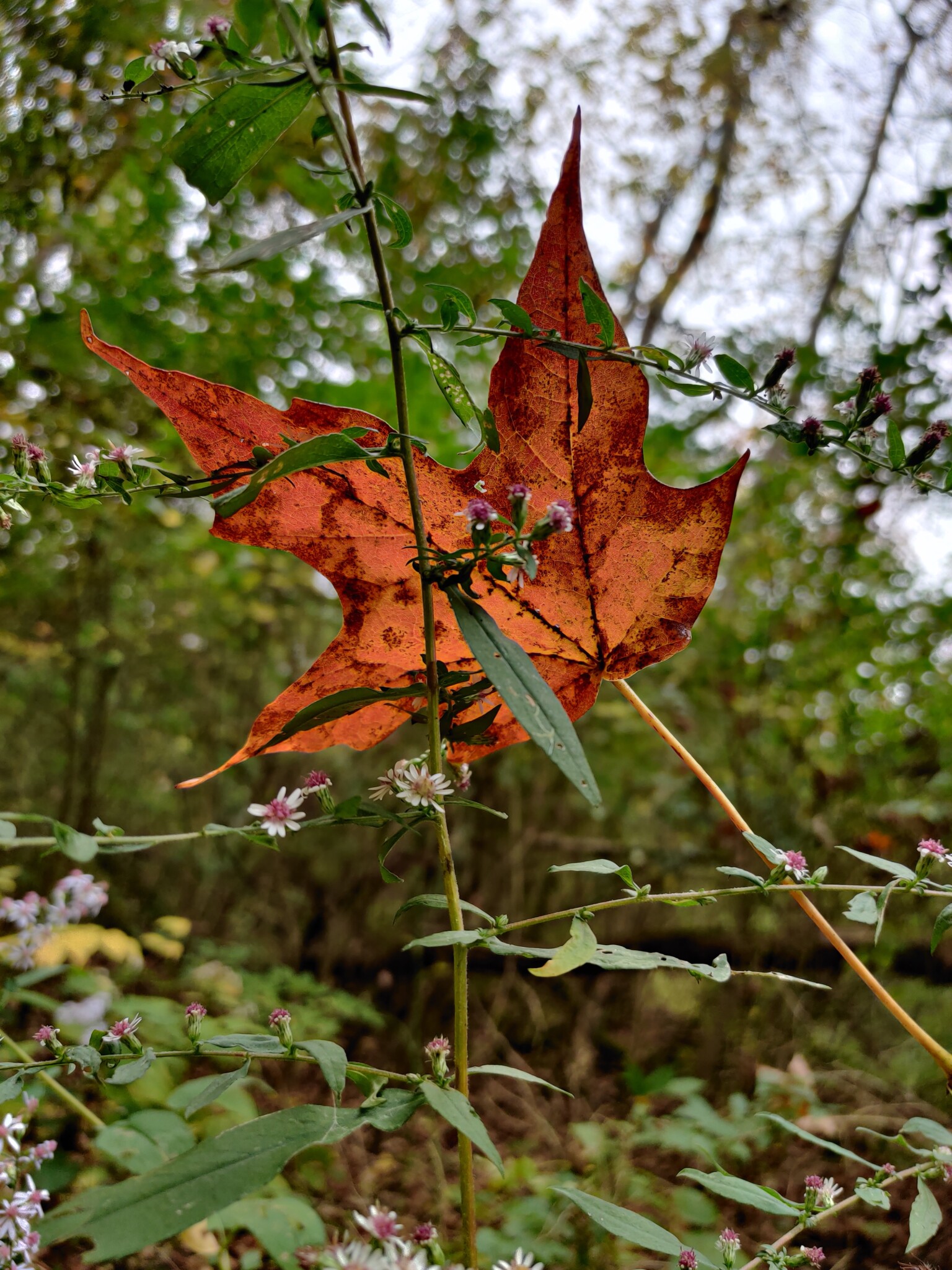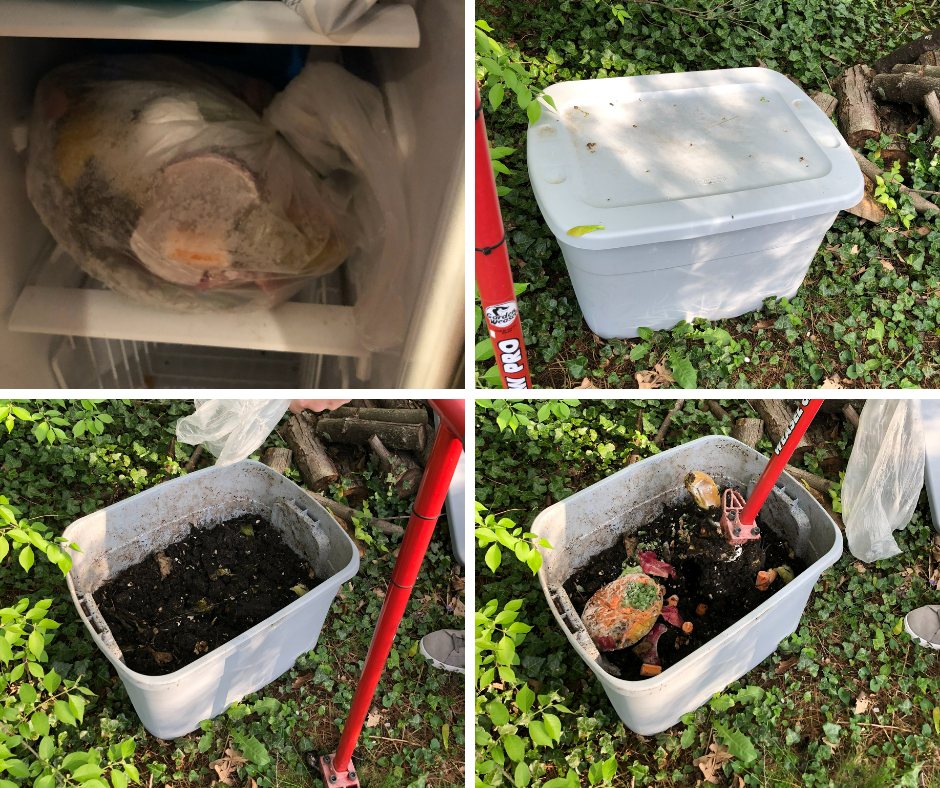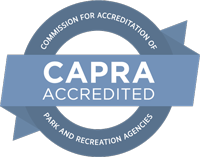Published June 27, 2023
Waste less for a lower carbon footprint
Heads up! This article was published 1 year ago.
By MetroParks Sustainability Manager Tim Pritchard
During Spring, we focused on the relationship between food systems and climate change and described how Project Drawdown emphasizes the importance of reducing food waste as a key strategy for mitigation. In fact, reducing waste in general is an extremely important and impactful way to curb carbon emissions. Just like wasting supplied energy, solid waste is carbon waste. Wasting materials is costly and drives further greenhouse gas emissions.
Think about it – anything we throw away was grown, manufactured or otherwise prepared, and processes to grow or make goods require energetic input. Last month’s post focused on the carbon/energy inputs needed to grow, transport, sell and prepare food, but this is also true of manufactured goods and why MetroParks is committed to promoting better waste management practices and continuing an agency-wide journey toward waste-free. These efforts include a long-standing partnership with the Montgomery County Environmental Services Solid Waste District to host a three-part composting program called Compost Kitchen, and an advocacy level training program called Master Recycling.
The next Compost Kitchen series will be hosted Thursdays, July 6, 13, and 21 at Possum Creek MetroPark. This program covers the basics of composting; in-depth soil science and composting biology; compost-centric sustainable gardening methods. Additionally we will share information about how to use composting as part of a waste-free strategy, emphasizing the importance of keeping organic waste out of the landfill. All participants completing the program receive a free composter and the class has no fee!
Likewise, the 2023 Master Recycling program will be held Wednesdays, July 26 through August 16 at the Montgomery County Solid Waste District’s Environmental Learning Center at the Sandridge Dr. campus. The series is meant to train citizens to be community leaders and advocates for reducing, reusing, and recycling efforts. Speakers include Solid Waste District staff, local reuse program representatives and industry experts from Rumpke. Participants complete four classes and commit to 20+ hours of volunteer services with MetroParks and other county organizations to promote better waste management and assist with waste-free events.

For those beginning a waste-free journey, here are three important actions that are easy to start and make an enormous impact. The EPA estimates around 70% of all material that enters the landfill could have been recycled or composted. We have great opportunity for collective improvement!
Avoid disposable goods
Sometimes this is easier said than done, but we often have a choice and there are simple ways to reduce the amount of disposable goods we use. Carry reusable bags for shopping, pack a traveler mug for beverages, buy in bulk rather than individual packages, and opt for refillable containers of goods when possible.
Participate in commingled recycling
Even recycling has an energy cost, but it is far less than disposal and manufacturing of new goods. Most food and beverage containers can be recycled in curbside, commingled recycling, and in the Miami Valley, all commingled recycling is ultimately handled by Rumpke. Know and understand its Recycle Right guidelines, and be confident that the materials they accept have viable recycling markets, most of which are right here in the Midwest.
Compost at home
Our region is lacking in community compost programs that accept food and food related waste, but getting it done at home is easy, and especially rewarding if you garden, landscape, or grow anything. Roughly 1/3 of waste that enters the landfill could have been composted and organic waste in the landfill generates methane. Do your part and reap the reward of high-quality soil amendment. For those who live in an apartment or a can’t use yard space, a vermicomposting (worm bin) set up is a perfect option. Also, most communities have access to yard waste composting through their public works department, and Montgomery County Solid Waste District accepts brush and yard debris for free during operating hours.


